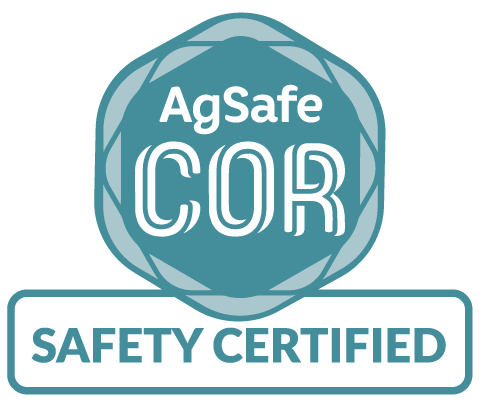Certificate of Recognition (COR) for Temporary Foreign Workers (TFWs)

Why Should Employers Get Certificate Of Recognition For Temporary Foreign Workers?
- Build a robust TFW labour force that is available year after year.
- Be prepared for audits from the Integrated Services Branch (ISB).
- Stay current with TFW regulations.
- Exemplify high standards for safety, setting an example for industry.
- Inform workers about their rights while working in Canada.
Mantengo
COR for TFW: A brief history
Temporary foreign workers are essential to many British Columbian farmers. They take on many jobs in agriculture including planting, harvesting, and pruning and livestock farming duties. Because of various language and cultural barriers, the injury rate for temporary foreign workers can be higher than for domestic workers.
Chad Stewart, AgSafe BC's Assistant Superintendent of Field Operations specializes in temporary foreign workers and is passionate about improving the safety of all guest workers in BC. In his over 10 years of experience with the TFW program in BC, he has observed farms with robust safety programs expanding and becoming more profitable.
Temporary Foreign Workers recognize when employers put a genuine effort to provide a safe workplace. Thus, COR sends a positive message internally and externally to employees, industry, and regulators that employers are actively working on safety. COR will also allow employers to get valuable feedback from TFWs to improve their safety program. All this will likely reduce injuries, illness, and rates, and foster an efficient and harmonious collaboration that can yield productive results.
When a farm has a strong TFW safety program, the workers not only want to return to the same farm next year, but they also help recruit friends and family," states Stewart. "When farms have a reliable, abundant labour force, it gives the owners more time to manage and grow their businesses.
Frequently Asked Questions (FAQS)
Disclaimer:
This package will not satisfy all federal requirements of the Temporary Foreign Worker programs. Supervisors must understand many aspects of the programs including National Occupation Classification (NOC) codes, job duties as stated on the LMIA, job advertisement and contract information.
Employers must have a robust Occupational Health and Safety program to ensure all workers are properly informed, instructed, trained, and supervised on the tasks they will perform while on the host farm/ranch.
